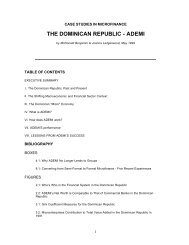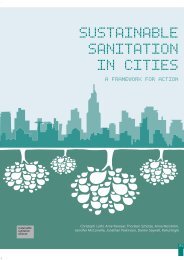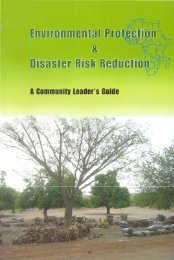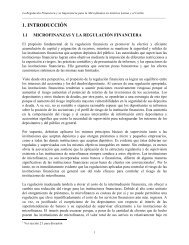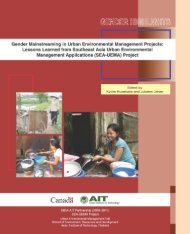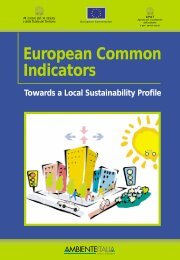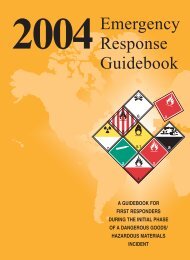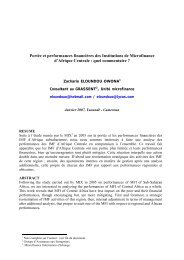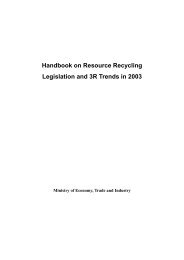The International Implementation Scheme (IIS) - Unesco
The International Implementation Scheme (IIS) - Unesco
The International Implementation Scheme (IIS) - Unesco
You also want an ePaper? Increase the reach of your titles
YUMPU automatically turns print PDFs into web optimized ePapers that Google loves.
DESD <strong>International</strong> <strong>Implementation</strong> <strong>Scheme</strong> (<strong>IIS</strong>)<br />
Local governments must also be given a key and active role. Local governments, as the<br />
closest level of government to the people, tasked with the delivery of public programmes and<br />
services, have a key role in improving the quality of people’s lives and to achieving the goal of<br />
sustainable development. Commitment to the ideals of decentralization and improved local<br />
governance reinforces the role of local governments and their partners in attaining the goals of<br />
sustainable development. Although technology and financial resources play an important role in<br />
development, without sound management and coordination capacity in place, especially at the<br />
local level, sustainable development is unlikely to be attainable.<br />
Local organisations, both community-based and in local government, can participate in the<br />
DESD in two ways:<br />
• Through integrating ESD into their own regular learning and programme activities. This will<br />
include identifying and implementing local relevant learning strategies in appropriate ways,<br />
and for a variety of target groups;<br />
• Through cooperating in local groupings and networks, set up on a formal basis or in and<br />
ad hoc manner to meet particular needs or respond to special opportunities. This may<br />
involve identifying local challenges in sustainable development, integrating local<br />
knowledge and skills into ESD, and exchanging experience. <strong>The</strong> local level is the primary<br />
place at which lessons for better practice in sustainable development can be learnt, shared<br />
and applied.<br />
Part of the initial efforts of the DESD must be to identify the potential local partners – this can<br />
only be done if one or more organisations take the lead to do so. Organisations include: schools,<br />
parent/teacher associations, school support groups, adult learning, literacy and NFE circles,<br />
cultural associations, youth organisations, cooperatives, faith-based groupings, self-help groups,<br />
development committees, local government departments, locally elected bodies and municipal<br />
services.<br />
Certain sections of the population may not, however, be represented among such groupings;<br />
marginalised groups such as the handicapped, the very poor, nomads and migrants, ethnic and<br />
linguistic minorities, the aged and the chronically ill are often neglected and may become<br />
invisible. Special efforts, with adequate investment of human and material resources, will be<br />
required to ensure that they participate in ESD and that they share in the benefits of sustainable<br />
development approaches and achievements.<br />
Table 3: Summary chart of local-level cooperation in ESD<br />
Community-based institutions<br />
and organisations such as:<br />
Working individually to:<br />
Cooperating in ad hoc or formal<br />
local groupings to:<br />
<br />
schools and school support<br />
groups, cultural<br />
associations, youth<br />
organisations,<br />
cooperatives, faith-based<br />
groupings, self-help groups,<br />
development committees,<br />
local government<br />
<br />
<br />
<br />
integrate ESD into regular<br />
learning activities and<br />
programmes<br />
identify and reach<br />
marginalised groups<br />
identify and implement<br />
learning strategies<br />
<br />
<br />
<br />
identify local sustainable<br />
development challenges<br />
integrate local knowledge and<br />
skills into ESD<br />
exchange ESD experiences<br />
and learn lessons for better<br />
practice<br />
7.2 National level<br />
According to the UN General Assembly resolution instituting the DESD, governments are invited<br />
to “consider the inclusion of measures to implement the Decade in their respective educational<br />
strategies and action plans by 2005” taking into account the current scheme of implementation.<br />
This stresses the importance of the national level in setting parameters for effective cooperation<br />
34<br />
2005



